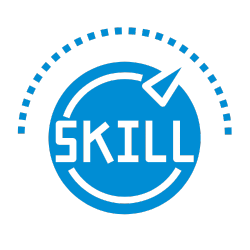YOUTH THEATRE
(12-18 YEARS)
At Drama Kids, our Youth Theatre classes help young people aged 12 to 18 strengthen their voice, express complex ideas, and grow into confident, thoughtful communicators, in the classroom and in everyday life.
Classes run in line with local school terms, typically around 12-week. Fees are paid per term, and students can join at any time during the year.
WANT TO SEE IF IT’S THE RIGHT FIT?
Try our two-week trial. If your child joins for the full term, we’ll deduct the trial fee from your total cost.

WHAT YOUTH THEATRE OFFERS YOUNG PEOPLE
Our Youth Theatre programme builds real-world communication skills through drama, with a focus on discussion, perspective, performance and personal voice.

CORE SKILLS:
Supports real-world communication skills, from school presentations to future interviews.
CLASSROOM EXPERIENCE:
Encourages self-expression in a structured setting, while building collaboration skills, independence, and responsibility.
CONFIDENCE IN ACTION:
Builds emotional maturity, self-awareness, and creative confidence.
THE LEARNING JOURNEY
These classes support young people in owning their perspective and finding their voice by exploring identity, communicating with purpose and collaborating in a space where their ideas lead the way.
Each term builds on the last, with students developing through script work, character exploration, and creative collaboration. The year ends with a full performance for family and friends.
Here’s what the journey looks like, from autumn to summer.
We explore voice, build perspective, and develop confidence to express thoughtful ideas.
DEVELOPING CORE SKILLS
- Persuasive speaking and oracy
- Emotional awareness and thoughtful communication
- Storytelling with clarity and meaning
IN THE CLASSROOM
- Monologues and solo pieces
- Improvisation on real-world themes
- Ensemble work exploring empathy and identity
- Creative writing and sound-based prompts
- Group discussions and circle dialogues
CONFIDENCE IN ACTION
- Sharing original thoughts with confidence
- Taking part in meaningful dialogue
- Exploring emotions and perspectives through devised work
CONFIDENCE IN ACTION
- Sharing original thoughts with confidence
- Taking part in meaningful dialogue
- Exploring emotions and perspectives through devised work
END OF TERM: THEY BEGIN SHAPING SCENES, SHARING IDEAS, AND DIRECTING GROUP WORK WITH PURPOSE AND CONFIDENCE.
We deepen performance skills while stepping into creative leadership and collaboration.
DEVELOPING CORE SKILLS
- Narrative structure and message-driven work
- Purposeful communication and expression
- Group collaboration and creative ownership
IN THE CLASSROOM
- Script work and genre exploration
- Role-play, character backstory, and mood setting
- Collaborative devising and ensemble feedback
- Improvisations that challenge and inspire
CONFIDENCE IN ACTION
- Leading rehearsals or directing scenes
- Creating and refining original material
- Stepping into roles of creative leadership
CONFIDENCE IN ACTION
- Leading rehearsals or directing scenes
- Creating and refining original material
- Stepping into roles of creative leadership
END OF TERM: THEY STEP INTO LEADERSHIP; GUIDING PEERS, SHAPING PERFORMANCES, AND SPEAKING WITH CONVICTION.
Rehearsals and performance bring it all together, with real-world skills.
DEVELOPING CORE SKILLS
- Public speaking and confident performance
- Responsibility, reliability, and resilience
- Self-expression with stage presence and purpose
IN THE CLASSROOM
- Full scripted production and rehearsal process
- Blocking, choreography, and vocal projection
- Creative risks in a supportive space
- Reflective feedback and independent preparation
CONFIDENCE IN ACTION
- Delivering polished performances
- Collaborating with maturity and focus
- Speaking, acting, or presenting with presence
CONFIDENCE IN ACTION
- Delivering polished performances
- Collaborating with maturity and focus
- Speaking, acting, or presenting with presence
END OF TERM: THEY LEAD NOT JUST BY EXAMPLE, BUT BY CONTRIBUTING BOLD IDEAS AND SUPPORTING THE GROUP.
Benefits of our Programme
In 1979 Helen O’Grady, a trained drama teacher and actress, recognised a need for individuals to develop their confidence and self-esteem and to improve their verbal communication skills.
Now, many years later, when we all rely so much on technology and communicate mostly through messages, emails and social media, that need has never been greater.
Our fun-packed lessons, for all age groups, instil the beauty of the spoken word. They enable people to have something to say, the confidence to say it and the creativity to make it interesting.
Ongoing attendance in the program develops individuals at their own rate, in so many ways and allows them to carry their new found skills seamlessly into ‘real life’. There is no doubt it is the confident, well-spoken and interesting candidate who will impress the panel/ the interviewers/ the audience. These are skills which can be learnt and learnt while having fun and making new friends.
